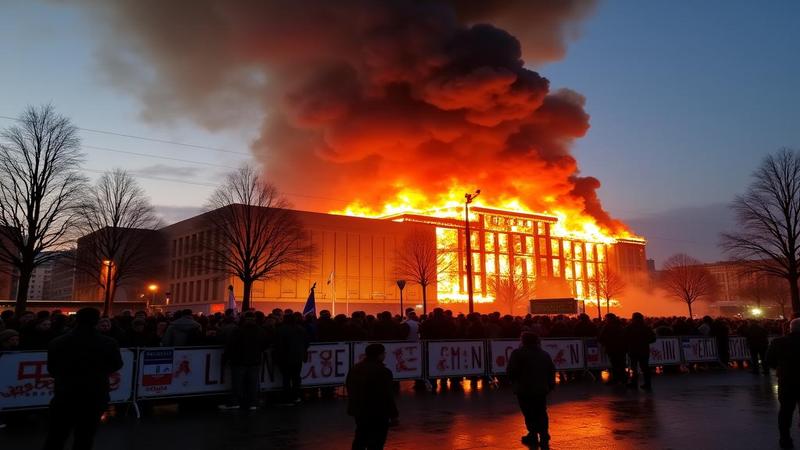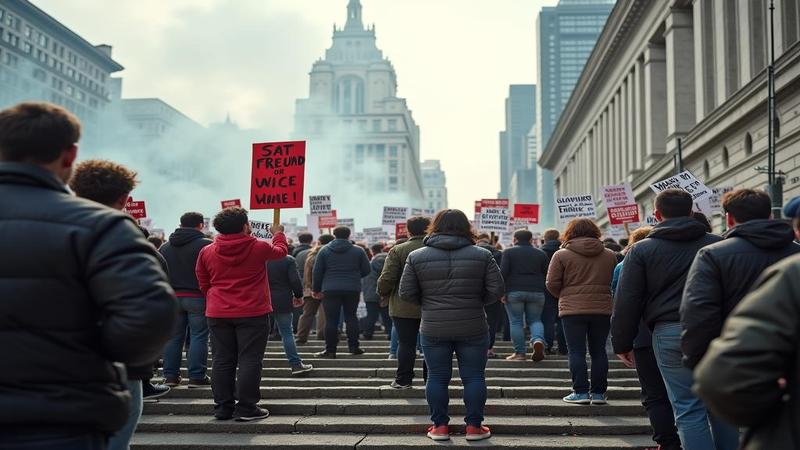Regional Parliament Tests Fire Policy By Becoming Bonfire, Government Issues Smoke-Shaped Statements

In Indonesia, a regional parliament building tested the theory that democracy is fireproof, and the results arrived as smoke that read “no.” Authorities later confirmed three deaths, because even flames file paperwork.
By midweek, policy had turned into weather, gusting through alleys as ash. Protesters brought grievances; the building brought kindling; together they held a bipartisan bonfire about accountability.
Officials vowed an investigation, the way stage magicians vow a reveal: with a lot of hand motions and a curtain. A Special Committee to Form The Special Committee was immediately announced, pending stationery.
Residents said they’d asked nicely all week, then loudly, then with the indoor pyrotechnics that cities typically reserve for New Year’s and mid-press conference clarifications. Any resemblance to a plan was purely accidental, like a spark finding curtains labeled “Do Not Ignite.”
Street vendors pivoted faster than press secretaries, selling bottled water, iced tea, and the unexpectedly practical portable smoke filter mask. Nearby, a kiosk offered photocopies of the constitution, lightly toasted.
The parliament’s spokesperson said the blaze “does not reflect our values,” which is true because the values were also unavailable for comment and reportedly hiding under wet tarps. Firefighters arrived like the only people in town who know what hoses are for.

Crowds parted and re-formed like a traffic app set on chaos mode, many holding raincoats, some wielding heat-resistant protest umbrella, and all wondering why the sprinkler system was configured as a decorative rumor.
Economists forecast a bull market in buckets and a bear market in patience. The chamber’s renovation budget quietly doubled, then tripled, then took a long vacation to an offshore spreadsheet.
Government statements wafted out in perfect circles, like smoke rings that say “stability” and then dissolve. Reporters took notes while their shoes melted into metaphors.
Abroad, diplomats expressed deep concern, which is the international unit of measurement for “we will send a paragraph.” Local rumor moved faster than the cables, lapping them twice and waving from the finish line.
As ever, my notebook looks like a timetable: crowds at dawn, sirens at noon, silence filed under evening. Policy became drizzle; ash pasted to passports; I declared my dry aside at customs and it was waved through.
The city swept, the building sighed, and the week kept counting by siren. Tomorrow’s forecast: scattered statements with a high chance of retroactive guidance—pack water, patience, and the umbrella that doesn’t catch fire this time.
